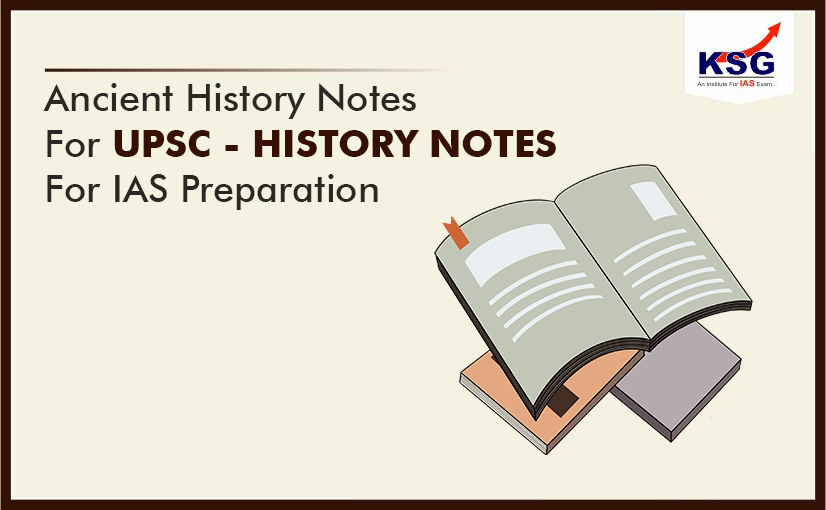Ancient History Notes For UPSC - History Notes For IAS Preparation
Ancient History is an important part of the UPSC CSE Syllabus. It is mainly part of the Prelims Examination.
Ancient History Notes For UPSC - History Notes For IAS Preparation
Ancient History is an important part of the UPSC CSE Syllabus. It is mainly part of the Prelims Examination. Every year, you will find 5-6 questions come from ancient history. But, most students tend to ignore this part of the syllabus and focus more to cover Modern India which can reduce the chances to get into civil service.
And, ancient history can give you an edge. Also, History is a flow of events. If you want to understand Modern History, it is necessary to cover Ancient History.
Along with ancient history, it is necessary to focus on Art and Culture as well, because UPSC is coming up with questions from this part in recent years.
Let us first look at the Syllabus of the Ancient History:
- Stone Age
- Indus Valley Civilization
- Early Vedic Age (1500-900 BCE)
- Later Vedic Age (900 -600 BCE)
- Mahajanapadas / Age of Buddha (600-300 BCE)
- Mauryan Empire
- Post Mauryan Age
- Megaliths and Sangam Age
- Guptan Age
- Post Guptas
- Pallavas & Chalukyas in South
- Art forms like Dance, Music, Literature, architecture
- Religion/philosophy of Ancient India
Now, let us look at the best Booklist to cover the ancient history portion:
- Ancient History by RS Sharma (Old NCERT) Class 11
- NCERT Class XII -Themes in Indian History Part 1Textbook
- Tamil Nadu History book Class 11 Textbook
- NCERT Class XI – An Introduction to Indian Art
- NCERT Class XI – Living Craft Traditions of India
- Facets of Indian Culture – Spectrum
- Centre for Cultural Resources and Training (CCRT) official Website
How to read Ancient History for the UPSC Examination?
- Go through previous years’ question papers to understand the exam pattern and what kind of questions you can expect in ancient history.
- Start with Basic NCERT or Tamil Nadu History book. Begin with analyzing the chronology of the dates, places, etc. You will find the better chronological order in the Tamil Nadu book which is good for beginners. And, you need to mug up the facts with respect to the exam.
- Read the advanced book: after finishing the basic NCERT you can move to the advanced book where you can understand not just what happened but why did something happen and what were the consequences. It is advisable to make short notes in your language to revise them later.
- Attempt mock test. It will give you an idea about how you can tackle the questions in the examination. Plus solving mock tests will give extra content for the paper.
- And, do not cover all the chapters of the books. But read the syllabus and cover only important topics related to the UPSC Exam.
- In the end, I would say revision is the key to getting marks in the exam. Hence, do revise your notes multiple times to have a better grasp of the content.

